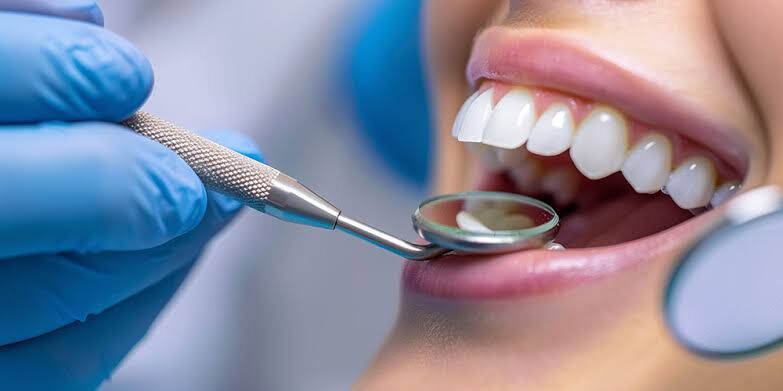Beware! Don’t ignore oral health issues; they can have links to diabetes, cardiovascular disease

Hyderabad: Oral health plays a central role in overall well-being. Good oral hygiene prevents tooth decay, gum disease, and infections that can affect the rest of the body. The World Health Organization (WHO) notes that nearly 3.5 billion people worldwide suffer from oral diseases, many of which are preventable with routine care.
Brush Correctly, Twice a Day
Brushing twice daily remains the foundation of oral hygiene. However, technique matters as much as frequency.
Dr. Anil Arora, a Senior Periodontist speaking to NewsMeter, explains, “Most patients either brush too aggressively or too quickly. The correct method is to place the toothbrush at a 45-degree angle to the gum line, use gentle circular motions, and spend at least two minutes.”
Dentists recommend a soft-bristle brush and replacing it every 3–4 months. Fluoride toothpaste is widely advised as fluoride strengthens enamel and reduces cavities.
Don’t Skip Flossing
Brushing cleans tooth surfaces, but flossing removes food and plaque from between teeth and under the gumline where brushes cannot reach.
“Flossing is often ignored in India, but it reduces the risk of gum inflammation and interdental cavities. Once-a-day flossing is usually sufficient for most people,” says Dr. Arora.
For those who find flossing difficult, interdental brushes or water flossers are effective alternatives.
Limit Sugary and Acidic Foods
Diet has a direct impact on oral health. Frequent consumption of sugary snacks, sodas, and acidic foods promotes tooth decay and enamel erosion.
Nutritionist Dr. Rakesh Iyer notes:
“Sugar feeds oral bacteria, producing acids that demineralize teeth. Acidic foods and drinks like citrus juices or carbonated beverages further weaken enamel. Moderation and rinsing the mouth with water afterward can help.”
Substituting sugary snacks with fiber-rich fruits and vegetables supports oral and digestive health.
Stay Hydrated and Use Fluoridated Water
Drinking enough water helps wash away food particles and neutralize acids. Many urban water supplies include fluoride, which strengthens teeth. Where tap water lacks fluoride, dentists recommend fluoride mouth rinses under professional guidance.
Avoid Tobacco and Limit Alcohol
Both tobacco use and heavy alcohol consumption significantly increase the risk of oral cancers, gum disease, and tooth loss.
According to the Indian Dental Association (IDA):
“Quitting tobacco is one of the most effective ways to improve oral health immediately. Stains, bad breath, and gum damage begin to reverse within months of quitting.”
Regular Dental Checkups
Professional cleanings and examinations every six months allow early detection of cavities, gum disease, or oral cancer.
Dr. Shivani Menon, Oral Medicine Specialist, emphasizes, “Patients often wait until pain develops, but many oral problems remain silent for months. Preventive visits save teeth, money, and overall health in the long run.”
Protect Your Teeth
For individuals involved in sports, mouthguards prevent dental trauma. Similarly, people who grind their teeth (bruxism) may benefit from a dentist-prescribed night guard to protect enamel.
Clean the Tongue
Bacteria also accumulate on the tongue. Gentle brushing or using a tongue scraper reduces bad breath and overall bacterial load in the mouth.
Daily Habits That Support Oral Health
• Rinse the mouth after meals, especially if brushing isn’t possible.
• Chew sugar-free gum to stimulate saliva production, which naturally protects teeth.
• Limit frequent snacking to reduce acid exposure.
The Bigger Picture
Oral health is linked with systemic conditions such as diabetes, cardiovascular disease, and adverse pregnancy outcomes.
“Oral infections can worsen existing chronic illnesses. Integrating oral care into general health routines should be a public health priority,” said Dr. Arora.
Key Takeaways
Improving oral health doesn’t require complicated routines; consistency is more important than perfection. Brushing twice daily with proper technique, flossing, limiting sugar, staying hydrated, and visiting the dentist regularly form the backbone of preventive care.
As Dr. Arora summarized, “Healthy teeth are not just about appearance. They are essential for nutrition, speech, and overall health. Small daily habits make the biggest difference.”
Source link

